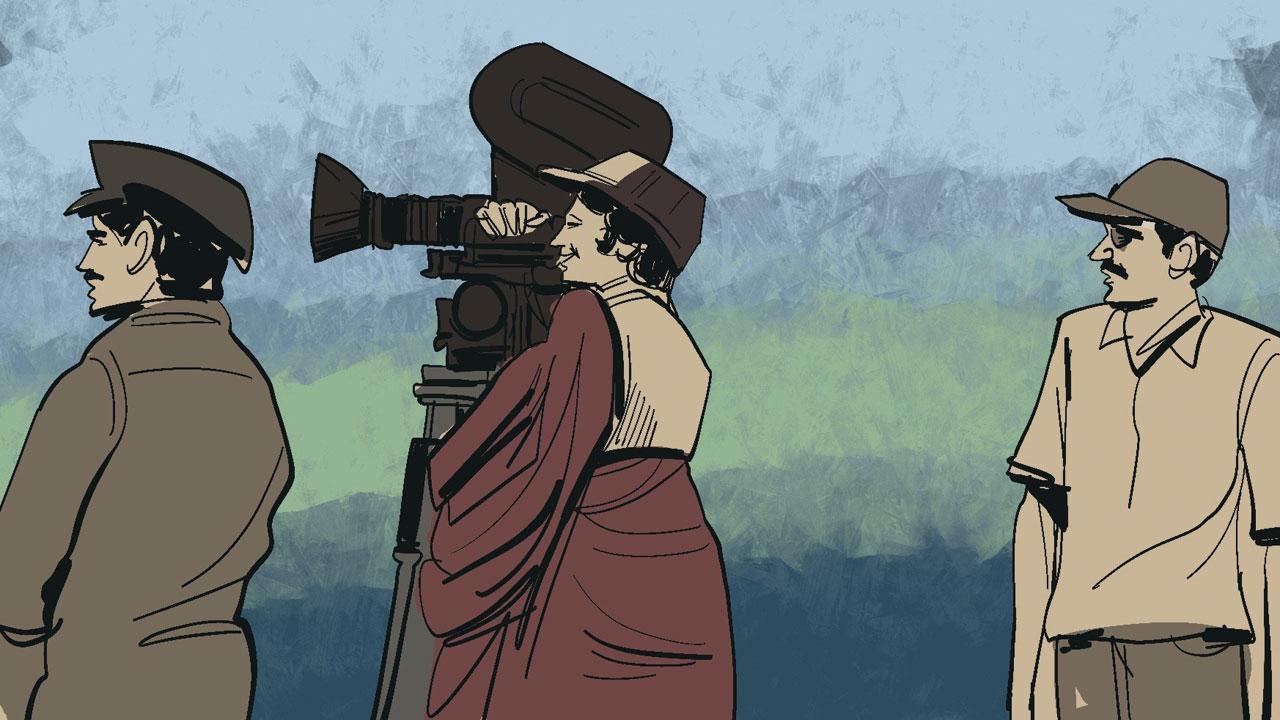It is also an invaluable addition to the body of work by Indian women directors, who are relatively so few

Illustration/Uday Mohite
Pathare, PhD, is a film activist and General Secretary of the Prabhat Chitra Mandal, one of Mumbai’s oldest film societies. As a documentary, it is straightforward—a series of indoor talking heads, with film clips, for 1h 51mins. But it is a valuable document on the life and films of Bhave who, along with Sukthankar, had a vital and sustained independent film career, and whose contribution remains unmatched in Indian cinema. The film explores Bhave’s philosophy, what she learnt from David Lean and Yasujiro Ozu, and how she approaches filmmaking as the head of a large family. Sukthankar describes how they complemented each other’s filmmaking skills. Although they found it challenging to get wide theatrical release for their films, they did find receptive audiences in the festival and NGO/impact space. I had the pleasure of presenting their Astu (on a family coping with Alzheimer’s) as part of the Women Directors Making Waves season of India on Film, a year-long programme of Indian and South Asian films at the British Film Institute (BFI), London, for which I was Guest Curator, in 2017. The audience was deeply moved and Robin Baker, Head Curator, BFI National Archive, told me “The actress with the elephant [Amruta Subhash] was absolutely magnificent.” Bhave-Sukthankar even had producers pursuing them to make films, such as Devrai and Ek Cup Chya, practically unheard of in Bollywood’s independent space.
It is thrilling to see Bhave’s conviction in her work and legacy emphatically vindicated. Sukthankar joined her when he was just 18, but the duo has deeply influenced a younger generation of outstanding Marathi filmmakers, including Umesh Kulkarni and Sachin Kundalkar, who joined them as assistants and who have also made a mark internationally. Kulkarni’s films include the exquisite Vihir (The Well, Berlin Film Festival), and Deool (Temple); while Sachin Kundalkar’s films include the powerful Gandha, Happy Journey (which Anjali Menon adapted as Koode in Malayalam), and the daring experiment Aiyyaa, starring Rani Mukherji and Prithviraj Sukumaran. There’s also Varun Narvekar, who made Muramba. When your work and legacy remain fiercely independent, despite being directly under the shadow of Bollywood, it is an achievement to be celebrated. Pro tip to Indian filmmakers: unless you pay for professional, high quality English subtitling, be prepared for your film to go out into the world strewn with bloopers, as in this one—“I’m from a nucleus family,” “sink sound,” and “she taught me the nuisances” (ulp).
Meenakshi Shedde is India and South Asia Delegate to the Berlin International Film Festival, National Award-winning critic, curator to festivals worldwide and journalist.
Reach her at meenakshi.shedde@mid-day.com
 Subscribe today by clicking the link and stay updated with the latest news!" Click here!
Subscribe today by clicking the link and stay updated with the latest news!" Click here!











